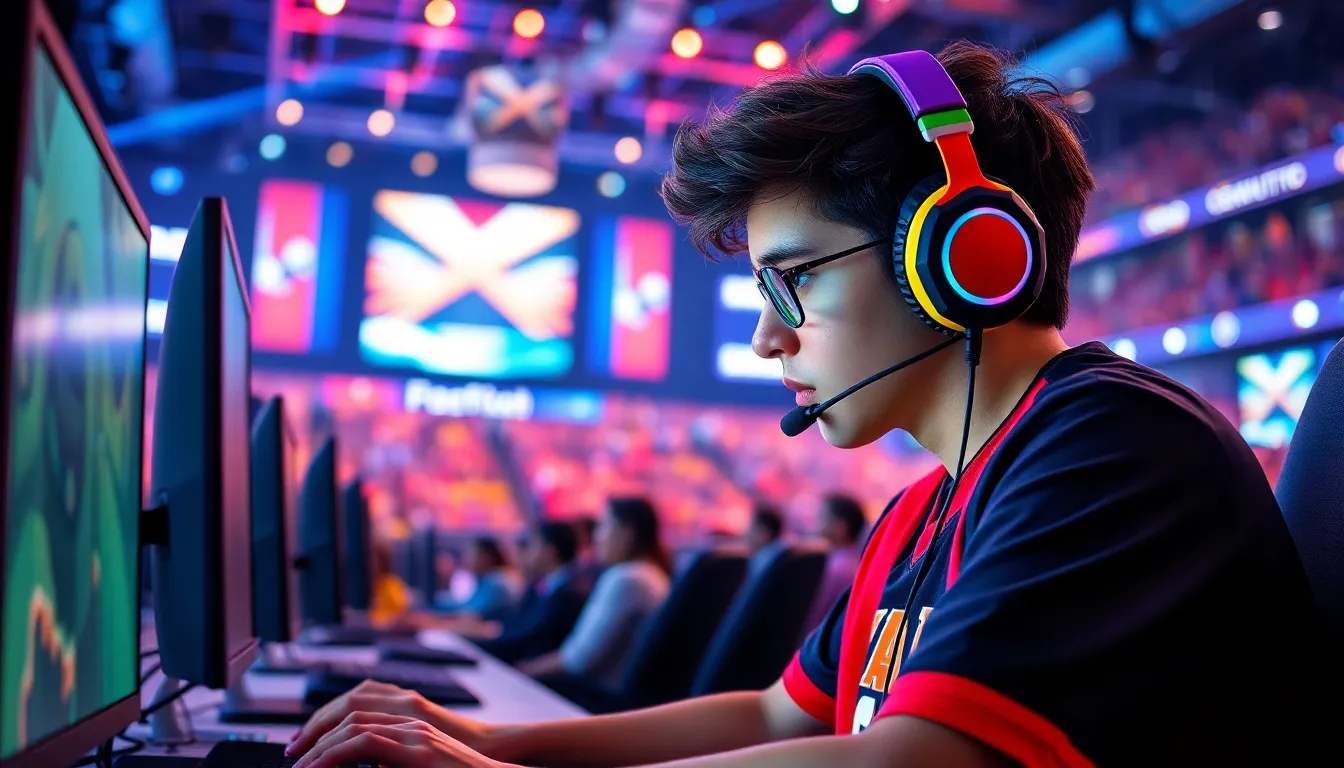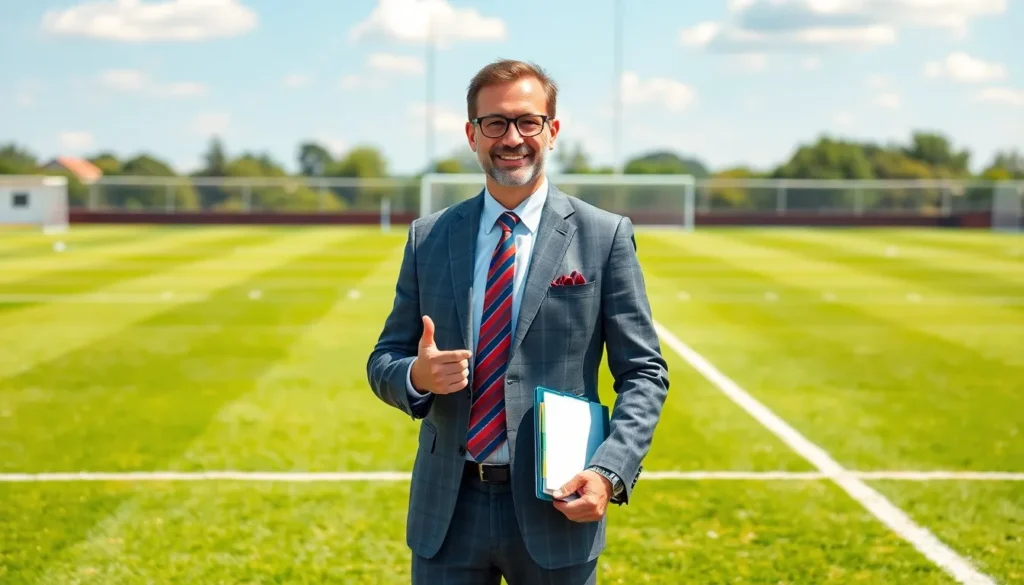Table of Contents
ToggleIn a world where competitive gaming fills arenas and millions tune in to watch, the debate rages on: should esports be considered a sport? Picture this: intense face-offs, nail-biting moments, and players sweating bullets over their keyboards. It’s not just a bunch of folks sitting in their pajamas munching on snacks—though we can’t deny that’s part of the charm!
As traditional sports evolve and new generations embrace digital competition, the lines between physical prowess and mental agility blur. Can someone really be an athlete if they don’t spend hours in the gym? Or is mastering a game just as demanding? Buckle up as we dive into this electrifying conversation that could redefine what it means to be a sport in today’s fast-paced world.
The Definition of Sport
Defining sport involves understanding both traditional and modern contexts. These definitions shape the ongoing debate about esports classification.
Traditional Sports Characteristics
Traditional sports exhibit a variety of defining features. Physical exertion constitutes a primary element, often accompanied by structured rules and competitive environments. Teamwork frequently plays a crucial role in many sports, facilitating collaboration among athletes. High skill levels are common, showcasing the athletes’ training, practice, and discipline. Competitions typically draw audiences, whether live or through broadcasts, highlighting the entertainment factor that engages fans.
Characteristics of Esports
Esports introduce unique characteristics to the definition of sport. Players demonstrate high levels of skill and strategy, often requiring intense practice and dedication. Competition occurs in organized formats, such as tournaments, with structured rules governing gameplay. Spectators play a significant role across various platforms, creating vibrant communities around games. Additionally, teamwork is evident in many esports, where players collaborate in real-time to achieve success against opposing teams.
Arguments For Esports Being Considered a Sport

Esports showcase attributes that align closely with traditional sports. The distinctive characteristics support the classification of esports as a legitimate sport.
Skill and Strategy
High-level gameplay requires extensive skill and strategic thinking. Players must demonstrate quick reflexes, decision-making abilities, and deep game knowledge. Developing these skills demands hours of practice, similar to the commitment seen in traditional athletes. Mastering complex game mechanics mirrors the technical prowess athletes exhibit in their respective sports. Recognition of these skills becomes increasingly important as competitive gaming gains prominence in various venues.
Competitive Nature
Esports feature organized competitions that captivate millions. Tournaments draw large audiences, highlighting intense rivalries and the drive to win. Professional players often train rigorously to refine their abilities and strategies, paralleling the routines of traditional athletes. Additionally, the competitive aspect fosters teamwork, with players collaborating to achieve common goals. The atmosphere during esports events echoes that of traditional sports, with fans passionately supporting their favorite teams. This competitive spirit contributes to the cultural significance of esports, reinforcing the argument that they deserve recognition as a sport.
Arguments Against Esports Being Considered a Sport
Debate exists around the classification of esports as sports. Critics argue several key points against this designation.
Physical Activity Factor
Traditional sports demand physical exertion, whereas esports focus primarily on mental engagement. Many believe the lack of significant physical movement disqualifies esports from being categorized alongside sports like football or basketball. Players may spend hours seated, which contrasts sharply with the core physical demands of conventional sports. This absence of rigorous, cardiovascular activity raises questions regarding athleticism in esports.
Perception and Cultural Attitudes
Society often perceives sports as physical activities requiring teamwork and athletic prowess. Many individuals see esports as mere entertainment rather than a legitimate sport. Cultural attitudes tend to prioritize the physicality of traditional sports, dismissing the competitive nature and strategic depth of esports. Organizations such as the International Olympic Committee recognize this bias, complicating esports’ entry into mainstream sports discussions. Concerns about acceptance within the traditional sports community further emphasize this divide.
The Future of Esports and Sports Recognition
Esports continues to grow in recognition and popularity, prompting discussions about its classification as a legitimate sport. Various factors contribute to this evolution.
Increasing Popularity and Viewership
Esports’ viewership has surged in recent years. In 2022, over 600 million people watched esports events globally. Competitive gaming attracts massive audiences, with tournaments often selling out arenas and drawing millions of online viewers. Platforms like Twitch and YouTube have also facilitated engagement, connecting fans with gamers in real time. This rising visibility highlights esports’ appeal and cultural significance. As competitive gaming gains traction, traditional sports figures and organizations recognize its potential and influence.
Potential for Olympic Inclusion
The International Olympic Committee has acknowledged esports’ growing prominence. As of 2023, ongoing discussions revolve around whether esports could be part of future Olympic Games. Lessons from traditional sports emphasize the importance of skill, teamwork, and strategy, aspects present in esports. Successful integration could redefine athleticism and inclusivity in the Olympic arena. Inclusion in the Olympics would elevate esports’ legitimacy, bridging the gap between gaming and traditional athletic competitions. Such recognition would signal a significant shift in cultural perceptions and acceptance.
The debate over whether esports should be classified as a sport continues to evolve. As gaming gains recognition for its strategic depth and competitive nature, society must reconsider traditional definitions of athleticism. The growing viewership and acceptance of esports highlight its cultural significance and the skills required to excel.
While critics maintain that physical exertion is a key component of sports, the mental acuity and teamwork displayed in esports cannot be overlooked. As organizations like the International Olympic Committee explore the potential inclusion of esports, it’s clear that the landscape of sports is changing. Embracing esports as a legitimate sport could pave the way for a more inclusive understanding of competition in the digital age.







